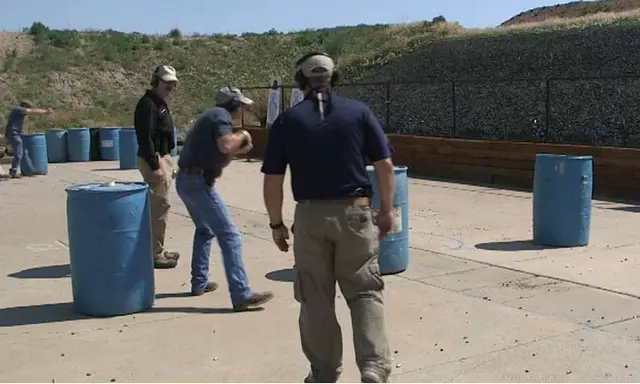The UN nuclear agency failed to make progress over the investigation of alleged Iran's nuclear weapon plan in the meetings with Tehran this week, the agency said Thursday in a press release.
The UN agency's delegation and Tehran discussed on Tuesday and Wednesday the implementation of the two practical measures relating to so called possible military dimensions (PMD issues) of Iran's atomic plan, but none of which were agreed.
"The two sides held discussions in relation to the implementation of the two practical measures relating to the initiation of high explosives and to neutron transport calculations," the agency's press office noted in a statement on Thursday.
It seems that the International Atomic Energy Agency (IAEA) and Tehran have started going into a circle in addressing the agency's concern over Tehran's disputed nuclear program since Aug. 15, the deadline Iran promised to implement five practical measures in pursuit of resolving all the past and present issues with the IAEA.
Till now, two of the five practical measures, relating to the so called possible military dimensions (PMD issues) of Iran's atomic plan were not implemented, but the discuss will continue.
"Iran did not propose any new measures during the meetings in Tehran. Iran and the Agency agreed to meet again, at a date to be announced," the press release noted.
The two measures were agreed in May that Iran would "exchanging information with the Agency" regarding the alleged initiation of high explosives and "providing mutually agreed" information related to neutron transport calculations.
The IAEA's lack of progress in verifying Iran's nuclear plan is a negative sign for the next round of meetings between Iranian Foreign Minister Mohammad Javad Zarif, EU foreign policy chief Catherine Ashton and U.S. Secretary of State John Kerry.
As Western officials has always been insisting that Iran should address all the IAEA's concern over its nuclear program in parallel with the final deal with P5+1 group, or the five UN Security Council permanent members plus Germany.
The IAEA said Iran missed the deadline of the agreement but Tehran denies, saying the invalid information that the agency obtained about Iran's nuclear plan caused the delay of implementing the practical measures.
Tehran has always been accusing the IAEA of using Western spy agency's intelligence to conduct inspection on Tehran's nuclear program, and the intelligence are all forged and misleading.
In a November 2011 report, the agency said based on the "credible" information it obtained, Tehran might carry out nuclear weapon research program under cover of its civilian nuclear plan.
The IAEA identified 12 areas of outstanding issues related to the alleged nuclear bomb research.
Iran dismisses the allegation and requests the agency to disclose the source of the information, but the IAEA refused to do so. Enditem
 简体中文
简体中文



